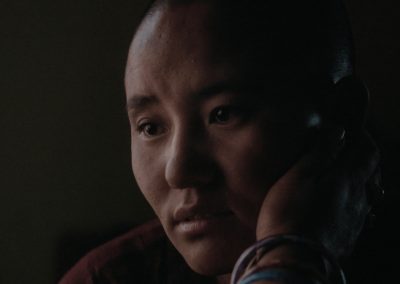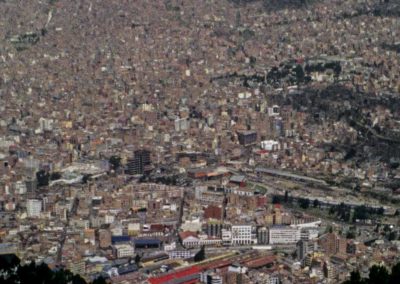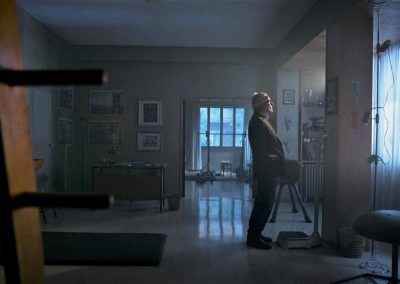Marx può aspettare
PerSo Masterpiece
By Marco Bellocchio
Italy, 2021, 100’
Saturday, Oct. 01, Méliès Cinema, Via della Viola 1, 4:30 p.m.
Directed by: Marco Bellocchio
Screenplay: Marco Bellocchio
Cinematography: Michele Cherchi Palmieri, Paolo Ferrari
Editing: Francesca Calvelli
Set design: Andrea Castorina
Costume design: Daria Calvelli
Music: Ezio Bosso
Producer: Simone Gattoni, Beppe Caschetto, Moreno Zani, Malcom Pagani
Production: Kavac, IBC Movie, Tenderstories, Rai Cinema
PerSo Masterpiece
SYNOPSIS
Camillo died in 1968. Almost fifty years later, Marco gathers his whole family for a lunch. With his family he wonders about Camillo, his twin who disappeared at the age of 29. Brothers. The grandchildren. The sister of the girlfriend of the time. A psychiatrist. A priest. Speaking with each of them, recalling those years and those facts, Marco reconstructs the pieces of the past, finally giving body to a ghost he has dealt with throughout his life. Marco Bellocchio, through his family, revives the story of his brother, without filters or modesty, almost an investigation, which reconstructs an historical era and weaves the red thread of so much of his cinema.
DIRECTOR’S NOTES
This film was created five years ago to commemorate the birthdays of the surviving Bellocchio brothers who, except me, had reached the age of eighty and had passed them (in the meantime I have passed them too) with wives, children and grandchildren at the Union Circle of which my father was one of the founders. But I immediately understood (on that December 16th, 2016) that the nostalgic commemoration of that past which to me, but also to the other brothers and sisters, had not given particular joys, did not interest me that much. It was Camillo, talking about Camillo, who interested me, of whom I had already talked about changing his name (Pippo) in the film The Eyes, the Mouth of 1981, but in that film I was actually talking about myself, the surviving twin and, since he was completely involved in the fagiolian experience, I wanted to give the film and myself a positive conclusion, a final “sanity”. A ransom. In short, the film had to end well. In fact, the surviving twin, arid and selfish, in the film falls in love with Pippo’s betrothed (after hating her) and will replace him in life while also preserving the creature that the young woman has in her womb, daughter of Pippo. That film was born under the sign of non-freedom, fear (of doing with fear that in art leads to failure), even the fear of displeasing my mother who was still alive, my brothers, of not being in line with the Fagioli principles, all ghosts that I created for myself since no one forbade me to do anything. Marx can wait instead became a film one piece at a time in five years made, conceived, edited in the spare time between one film and another (I’m talking about normal films that are shot with 50 crew members) free not to have final obligations, also because the cost was very low, running after the surviving witnesses (many had in the meantime been missing, therefore their precious memories disappeared forever) and in particular by focusing on interviews with family members, sisters, brothers, sisters-in-law, children, grandchildren who give the film, for their testimonies, the sense of an intimacy that is at the same time tragic, but also sublimely ironic as it is a bit in the style of the Bellocchios. Interviews then partially combined with photographic documents, small Super 8 of Camillo miraculously found, paintings, and some of my films that reveal, albeit in a metaphorical form, an almost obvious truth and that is that fantasy comes from our life, from how we lived, in a more Chekhovian than Shakespearean register, melodramatic even if it is not easy to find melodrama in Chekhov (perhaps yes, in a hysterical-grotesque key). Even the psychiatrist and the priest are an important presence and, once the meteor of politics has fallen, they represent the two constant reference themes of my life: madness and the Catholic Church, Catholic education, of which ample traces remain in me, even if I’ve always tried to get rid of it. The double blasphemy in My mother’s smile is the seal of my condition. Finally, I want to remember the music by Ezio Bosso that greatly enriches the film. In the misfortune of having lost him, a huge loss for music and more generally for Italian art, we were lucky enough to be able to dispose of it and therefore thanks to those who allowed it. And first to those who suggested it to us.

MARCO BELLOCCHIO
Movie director. After having enrolled in the Faculty of Philosophy of the Catholic University of Milan, in 1959 he enrolled at the Experimental Center of Cinematography in Rome. After having attended the film courses of the Slade School of Fine Arts in London (where he wrote a thesis on Antonioni and Bresson’s cinema), in 1965 he made his debut at the Venice Film Festival with Fists in the pocket, a work that addresses the progressive crumbling of the values on which the family is based. In the following years he approaches militant cinema: his nonconformism (and his ideological tendencies of the extreme left), find an outlet in films such as China is near (1967) and Nel nome del padre (1972). In the same period he staged a politicized edition of William Shakespeare’s Timone d’Atene at the Piccolo Teatro in Milan. Films such as Sbatti il mostro in prima pagina (1972) on the world of journalism, and Matti da slegare (1975) on Italian asylums, written with Silvano Agosti, Sandro Petraglia and Stefano Rulli, have less success. After Victory March (1976) on the barracks and military service environments, Bellocchio dedicates himself to television with two productions: the direction of Chekhov’s Seagull (1977) and the collective investigation La macchina cinema (1978). In 1982 – eighteen years after Fists in the pocket – he returns to analyze his family past with The Eyes, the Mouth which are followed, in 1984 by Henry IV (taken from the comedy by Luigi Pirandello) and Devil in the Flesh (1986) a free interpretation of the novel of the same name by Raymond Radyguet. After The Conviction (1991), he won the Silver Bear at the Berlin Film Festival with The Butterfly’s Dream in 1994. In 1999 he made The Nanny (based on a novel by Pirandello) which won the David di Donatello for the costumes and four Ciak d’Oro for the best supporting actress, photography, set design and costumes. In 1999 he was honored with an Honor Award for Contribution to Cinema at the Moscow International Film Festival, while in 2011 he was awarded the Golden Lion for Lifetime Achievement at the Venice International Film Festival, and in 2021 he received an honorary Palme d’Or at the Cannes Film Festival.
FILMOGRAPHY
- I pugni in tasca (1965)
- La Cina è vicina (1967)
- Discutiamo, discutiamo, episodio di Amore e rabbia (1969)
- Nel nome del padre (1972)
- Sbatti il mostro in prima pagina (1972)
- Marcia trionfale (1976)
- Salto nel vuoto (1980)
- Gli occhi, la bocca (1982)
- Enrico IV (1984)
- Diavolo in corpo (1986)
- La visione del sabba (1988)
- La condanna (1991)
- Il sogno della farfalla (1994)
- Il principe di Homburg (1997)
- La balia (1999)
- L’ora di religione (2002)
- Buongiorno, notte (2003)
- Il regista di matrimoni (2006)
- Sorelle (2006)
- Vincere (2009)
- Sorelle Mai (2010)
- Bella addormentata (2012)
- Sangue del mio sangue (2015)
- Fai bei sogni (2016)
- Il traditore (2019)
- Esterno notte (2022)
Documentaries
- Il popolo calabrese ha rialzato la testa (1969) – co-regia
- Viva il 1º maggio rosso proletario (1969) – co-regia
- Matti da slegare (1975), co-regia con Silvano Agosti, Sandro Petraglia, Stefano Rulli
- La macchina cinema (1979), co-regia con Silvano Agosti, Sandro Petraglia, Stefano Rulli
- Vacanze in Val Trebbia (1980)
- Addio del passato (2002)
- La primavera del 2002 – L’Italia protesta, l’Italia si ferma video documentario collettivo (2002)
- Appunti per un film su Zio Vania (2002)
- Marx può aspettare (2021)






